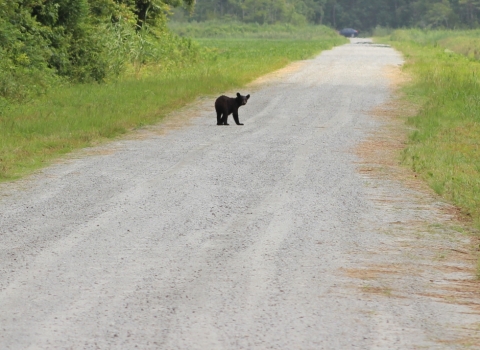The U.S. Fish and Wildlife Service announced today that it will release a final environmental assessment and finding that will allow tundra swan hunting to proceed in the Pacific Flyway next season, pending final approval under the migratory bird framework process, with restrictions designed to minimize impacts to trumpeter swan populations. The Service initiated the assessment in order to include recent swan population survey data and to evaluate the effect of the completed 2000-2001 limited swan hunting season.
"This decision protects trumpeter swans, while also ensuring the continuation of tundra swan hunting in the Pacific Flyway," said acting Service Director Marshall Jones. "Populations of both trumpeter and tundra swans have reached record levels, and this decision will extend protections that have facilitated this growth."
The final environmental assessment approves continuation of the course of action previously adopted in July of 2000, when the Service authorized a general swan hunting season in Nevada and Montana and extended an experimental season in Utah, after imposing restrictions designed to minimize the chance that trumpeters would be taken by hunters who mistook them for tundra swans. The decision continues restrictions put in place last year that reduced the number of swan hunting permits available in Utah, reduced the number of trumpeter swans that could be accidentally taken, and reduced the areas in which tundra swan hunting could take place to give added protection to trumpeters. At the same time, the Service will again establish a regular general swan season in Nevada and Montana and extend the experimental season in Utah.
Swan harvests in Utah and Nevada would continue to be monitored and the hunting season immediately closed if the states


